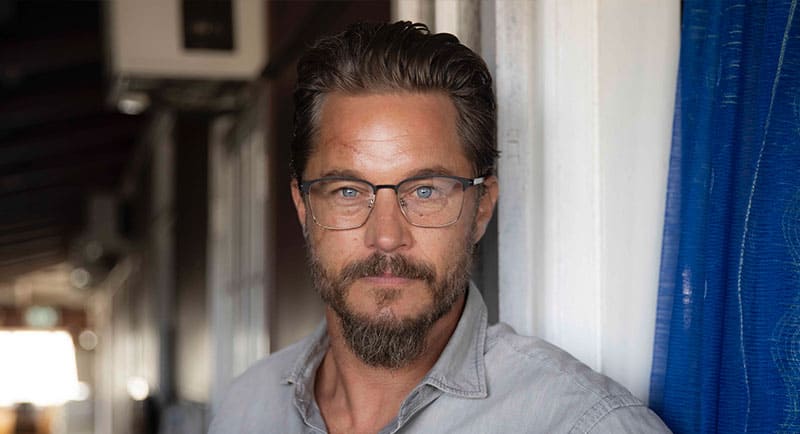Stan has kicked off 2023 with a bang, by releasing its new six-part mini-series, Black Snow, starring Vikings star Travis Fimmel.
The story starts in 1994, when seventeen-year-old Isabel Baker is murdered. The crime shocked the small town of Ashford and devastated Isabel’s Australian South Sea Islander community. The case was never solved, the killer was never found, and 25 years later the opening of a time capsule unearths a secret that puts cold-case Detective James Cormack on the killer’s trail. Suspicion is cast over the entire town, fracturing the harmony they have spent years rebuilding.
The show unfolds across two timeframes, with Isabel driving the 1994 strand and Detective Cormack in the present day. Black Snow combines the character-driven storytelling of a coming-of-age drama with the gripping mystery of a classic whodunit to create a unique series deeply rooted in its unique North Queensland setting.
Black Snow also features newcomers Talijah Blackman-Corowa, Jemmason Power, and Molly Fatnowna, alongside Brooke Satchwell (Mr Inbetween), Alexander England (Alien: Covenant), Erik Thomson (Packed to the Rafters), Kym Gyngell (Wakefield) and Rob Carlton (Total Control). The series will also feature the screen debut of Australian musician Ziggy Ramo.
The Black Snow is produced by Goalpost Television, created by Lucas Taylor (Harrow), writing alongside Boyd Quakawoot (Black Comedy) and Beatrix Christian (Jindabyne). Directed by Sian Davies (The Gloaming) and Matthew Saville (Please Like Me) and shot by Murray Lui (Top End Wedding), the series is produced by Goalpost’s Rosemary Blight (The Invisible Man), alongside Lois Randall and Kaylene Butler.
Mediaweek was on set in Airlie Beach in Far North Queensland and caught up with both executive producer Rosemary Blight from Goalpost Television, and actress Brooke Satchwell to talk about the new premium drama and the importance of Australian productions.
“Sometimes I ask myself whose idea was it to bring a whole lot of new actors with a really well-known actor into a remote location, a million miles from anywhere, and to film across two timeframes?” asked Blight. “You’ve got to be mad, but it’s going really well. You can only do it when you have a streamer that can elevate it and actually give you the resources. It’s a challenge but wonderful.”
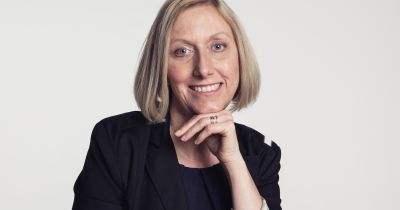
Producer Rosemary Blight
When asked about the approach to a six-episode limited series, Blight said that it was very different to a recurring series and played to Goalpost Television’s strengths.
“These sort of things is what Goalpost does well. We try and work in an elevated drama environment. To do that in a continuing series is tougher. You have a different approach to it. Whereas this is it’s almost like a movie.”
Satchwell also commented that the industry has changed in how it produces content and developed talent, and a platform like Stan with a show like Black Snow is a modern example of that.
“I started my career at the end of the halcyon days when there were a lot of long-running series and dramas. As everyone’s mourning at the moment with the end of neighbours, these were technical universities for us. It’s how we learned, we got to get the runs on the board, and got experience. There’s the intellectual theoretical side of this business, but so much of it is learned habits and knowledge gleaned from experience, just in terms of how things operate, or how to navigate things. It’s a very fast-moving landscape, certainly, increasingly so in more recent times.
“That shift from longer running productions to shorter running productions, just satisfies market needs and the flow of finances coming through. There are not necessarily the same allocations of funds in the more traditional structures to stay in long-term production. The idea that something has to find an instantaneous market these days, whereas historically, projects had a little more time to breathe and to be discovered, and there was just a totally different mechanism.”
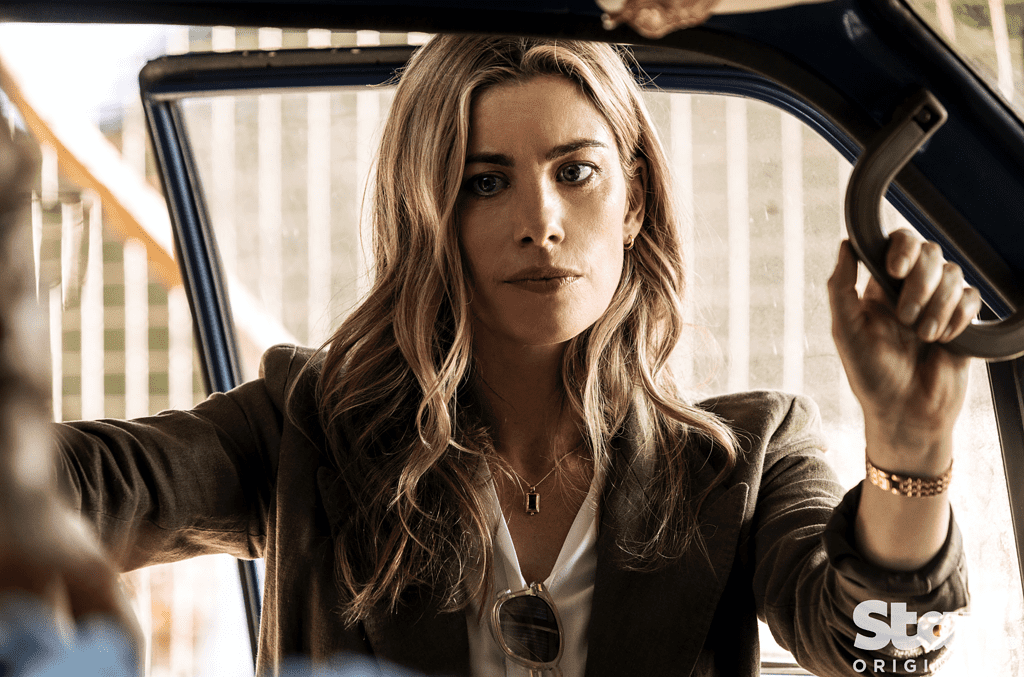
Brooke Satchwell
Working with a streaming platform and international markets
Blight said that this limited run also allows production to lure more notable talent such as Travis Fimmel.
“To attract someone of Travis’s level who is so incredibly recognised around the world, and can open doorways for international broadcasters around the world. To ask him to be in a long-running Australian environment is a very challenging thing. What we choose to do, is do the best six hours of television we can do with the most extraordinary cast we can pull together.”
Blight believes that another thing that plays in the show’s favour when it comes to international distribution is the uniqueness of the tale.
“I’ve got this theory that the more distinct it is, the better it sells. And this story is so untold. The story of people being taken from islands to work in the cane fields in this country is a story that when we think about it is quite a universal story. We’ve seen Underground Railroad and all these incredible movies and television shows out of America, but we don’t have it. If you have a story like this, something really important, you need someone at the level of Travis to help push it out internationally as well.
“He has opened up doors to make this incredibly distinct Australian story International. That’s what someone of his level does. It is an incredible gift.”
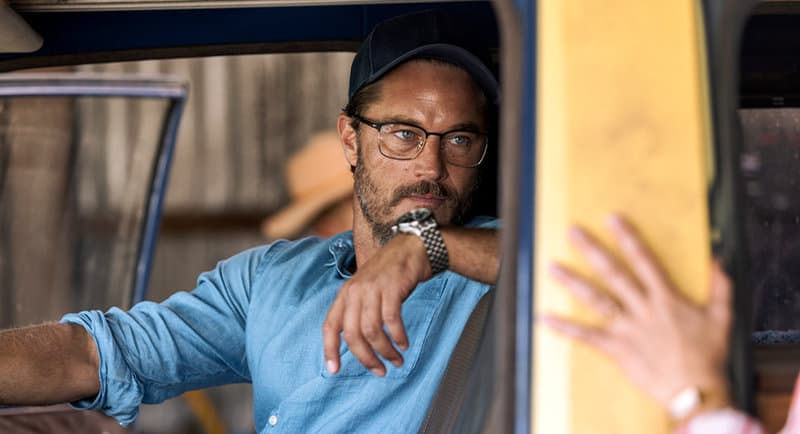
Satchwell also said that the appetite for Australian drama has never been higher with more platforms than ever to host new and evolving stories.
“As far as film and television and storytelling goes in Australia, there’s a great confluence of us evolving as practitioners. We’ve always been punching above our weight in terms of Australian content, and being a smaller market, but given the interest and globalisation of the market and a lot of overseas projects coming here and with the advent of streamers, there’s certainly been an explosion in the hunger and the appetite for storytelling. That’s beautifully intersecting with a lot of evolutions we’re making as a society, we’re starting to go deeper and wider in terms of the voices we’re hearing and the landscape that we’re exploring and getting a much fuller and more enriched representation of who we are as a people.”
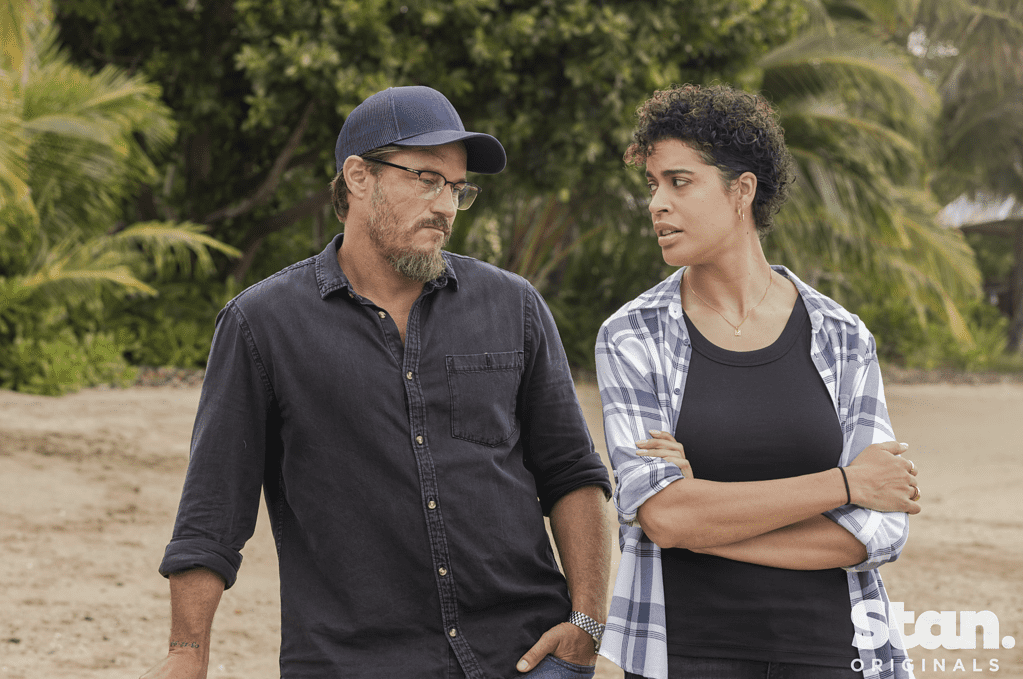
Satchwell continued and spoke about working for a streaming platform for the first time, describing the difference between a company such as Stan and a linear broadcaster.
“They are Different platforms. Everybody’s got their own flavour and snap, they want to put on their storytelling. They’re obviously diversifying more and more with more and more platforms appearing in the marketplace. I really liked what Stan’s been doing, I really enjoyed Wolf Like Me recently. It was just that slightly more nuanced kooky voice, a little bit outside of the box. That’s a great landscape to explore, with storytelling to have that kind of support and creative space made for you to go a little bit left of centre. I do like the ferocious competition that then occurs when the marketplace starts to become so full.”
Black Snow: Trojan Horses
While actors like Fimmel and Satchwell are the major drawcard, Blight said that people will be surprised by the level of new talent that the show will unearth such as Talijah Blackman-Corowa, Jemmason Power, and Molly Fatnowna.
“It’s a bit of a Trojan horse, and I’m sure he wouldn’t mind me saying that, it’s incredibly generous. He’s bringing star power. You can’t walk down the street with Travis without everybody knowing who he is and underneath we’re going to deliver this story to the world. It’s pretty great.”
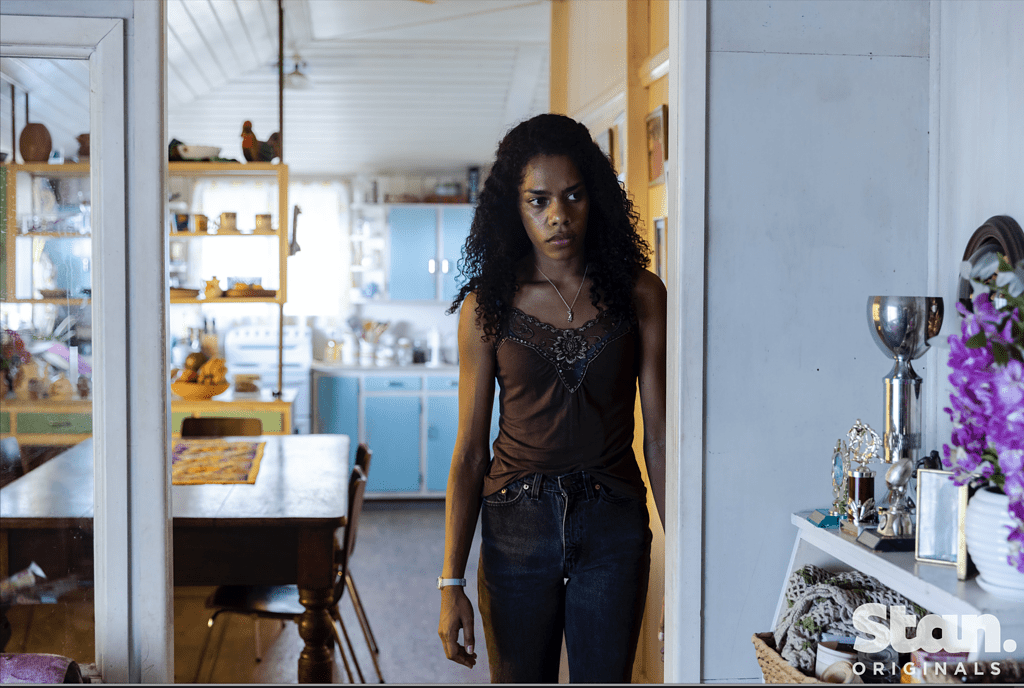
Blight said that the second trojan horse in the show is how bingeable it is, with the goal being that as many episodes are consumed as quickly as possible.
“When we were developing this, it was always our intention to keep the genre alive and really strong. It is a who done it, it is a crime thriller. Lucas Taylor’s expertise is in these crime thrillers. He is a crime thriller nut, he will drive you stark raving mad, that every beat needs to be there. That is exactly what it needs because again, that’s the other Trojan horse. The genre is the Trojan horse. When everyone is watching the show, if we do our job properly, after episode one you will have no choice but to dive into episode two.”
“It’s not a slow burn. We are literally into it from the beginning and everything ends like that. It’s real straightforward, it’s not a language show, it’s not slow character development. The characters are there, but they get up very fast. So the audience can grab on very fast to this story, and we take them for a ride.”

Satchwell also added that the industry is getting better at selling diverse stories as part of a cultural shift.
“To have the Baker family front and centre in this story is brilliant, as much as we had imbalances to redress in terms of what voices were represented in our storytelling and cultural discussions. When you were first posed with that shift, it can tend to be quite administrative, but I feel like we’re now starting to catch the waves and catching momentum. Those stories are now starting to be front and centre because they are incredible. With complex human stories that are fascinating and engaging in their own right.”
The importance of Australian Drama
Blight said that there is a high level of drama coming out of Australia, with many of them featuring fellow interviewee Brooke Satchwell, but said that local productions have steep competition from international programs due to the difference in budget.
“Brooke is almost in all of them because she’s so great. The bar is so high to get this show up against Succession and Mare of Easttown. Our budget is their single-episode budget. It’s a really big ask. That’s the ambition of all sorts of high-end drama producers in this country. How do we manipulate it within an Australian budget environment?”
Blight acknowledged the support from Screen Queensland in making Black Snow, but commented that she is hoping the federal government will see the value and power of video content.
“Screen Queensland is rather very supportive and they’ve really made it possible.
“I’m hoping that the new federal government will see the power of culture in terms of soft diplomacy around the world and being able to identify and represent to the world, the uniqueness of Australia and the variety of its storytelling.“
